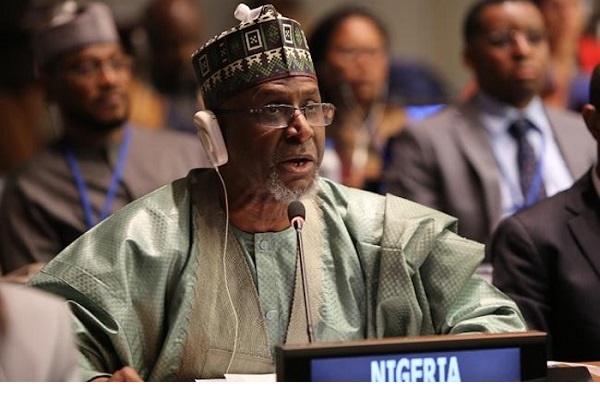The Federal Government has reiterated its commitment towards attaining a clean, safe and sustainable environment in Nigeria.

Minister of Environment, Malam Balarabe Lawal, stated this on Wednesday, January 22, 2025, at a one-day workshop on the review of decommissioning plans and environmental remediation strategies in Abuja.
The minister said that the workshop aimed to enhance the technical expertise of participants in evaluating decommissioning plans and environmental remediation strategies.
He said it also aimed to promote compliance with national and international environmental standards and guidelines among others.
Lawal said that the event was not just timely, but crucial to environmental sustainability.
He said that the event underscored the collective responsibility to ensure that environmental sustainability remains at the forefront of the country’s national development agenda.
“This workshop also represents an important step toward ensuring that industrial activities in Nigeria align with the highest standards of environmental protection and sustainability,” he said.
He said that decommissioning and remediation were critical aspects of sustainable resource management.
“Nigeria like many nations, faces challenges in the areas of regulatory compliance, capacity building and the availability of advanced technologies for decommissioning and remediation.
“However, these challenges also present opportunities. By investing in training and fostering collaborations among stakeholders.
“We can build a robust framework that ensures best practices are adopted and enforced.
“As Nigeria continues to grow its industrial, extractive and energy sectors, we must not lose sight of the potential environmental and social impacts of these activities.
“Ensuring that sites are properly decommissioned and that effective remediation strategies are implemented is vital to safeguarding the health of our people.
“This will also protect biodiversity and ensuring the sustainable use of our natural resources.
“Over the years, we have witnessed poorly managed decommissioning and remediation efforts leading to long-term environmental damage, public health crises and substantial economic costs,” he said.
Lawal said the ministry recognised the invaluable contributions of agencies like the National Environmental Standard and Regulation Enforcement Agency (NESREA) in enforcing environmental regulations.
He equally recognised the contribution of the Hydrocarbon Pollution and Remediation Project (HYPREP) for remediation and cleanup of the Niger Delta region.
“Together, we will continue to build a future where industrial growth is balanced with environmental protection as well as ensuring a safe and sustainable Nigeria for generations to come,” he said.
In a remark, Dr. Innocent Barikor, Director-General, National Environmental Standards and Regulations Enforcement Agency (NESREA), said that decommissioning industrial facilities was an integral part of the agency’s regulatory oversight.
He said that NESREA plays a vital role in safeguarding Nigeria’s environment by enforcing compliance with environmental laws, regulations, and standards.
“Our responsibilities span multiple sectors, including energy, manufacturing, telecommunications and extractive industries.
“Our work ensures that industrial activities do not compromise the well-being of our ecosystems or communities.
“As you know decommissioning industrial facilities is an integral part of our regulatory oversight.
“This process goes beyond the cessation of operations; it involves managing environmental risks, ensuring safe disposal of waste, mitigating hazards and remediating sites to protect public health.
“This workshop is designed to provide you, as NESREA staff, with the tools to effectively evaluate and oversee these processes, ensuring they align with both national regulations and international best practices.
“As a regulator, our effectiveness depends on the strength of our knowledge base, the clarity of our processes, and our ability to adapt to evolving environmental challenges,” he said.
In a presentation, European Union (EU), programme facilitator, Mrs Agharese Onaghise, said that the idea of decommissioning was to serve as an environmental cleanup and remediation strategy to help recover and protect lands for future purposes.
“Decommissioning can be defined as the administrative and technical actions taken to remove some or all of the regulatory controls from a facility so that the facility and it’s site can be reused or repurposed.
“This process encompasses all activities from initial planning to final site release, including decontamination, dismantling waste management and environmental remediation,” she said.
She said that the scope of decommissioning varies, depending on the type and complexity of the facility, the nature and extent of contamination and the applicable regulatory requirements.
By Doris Esa
